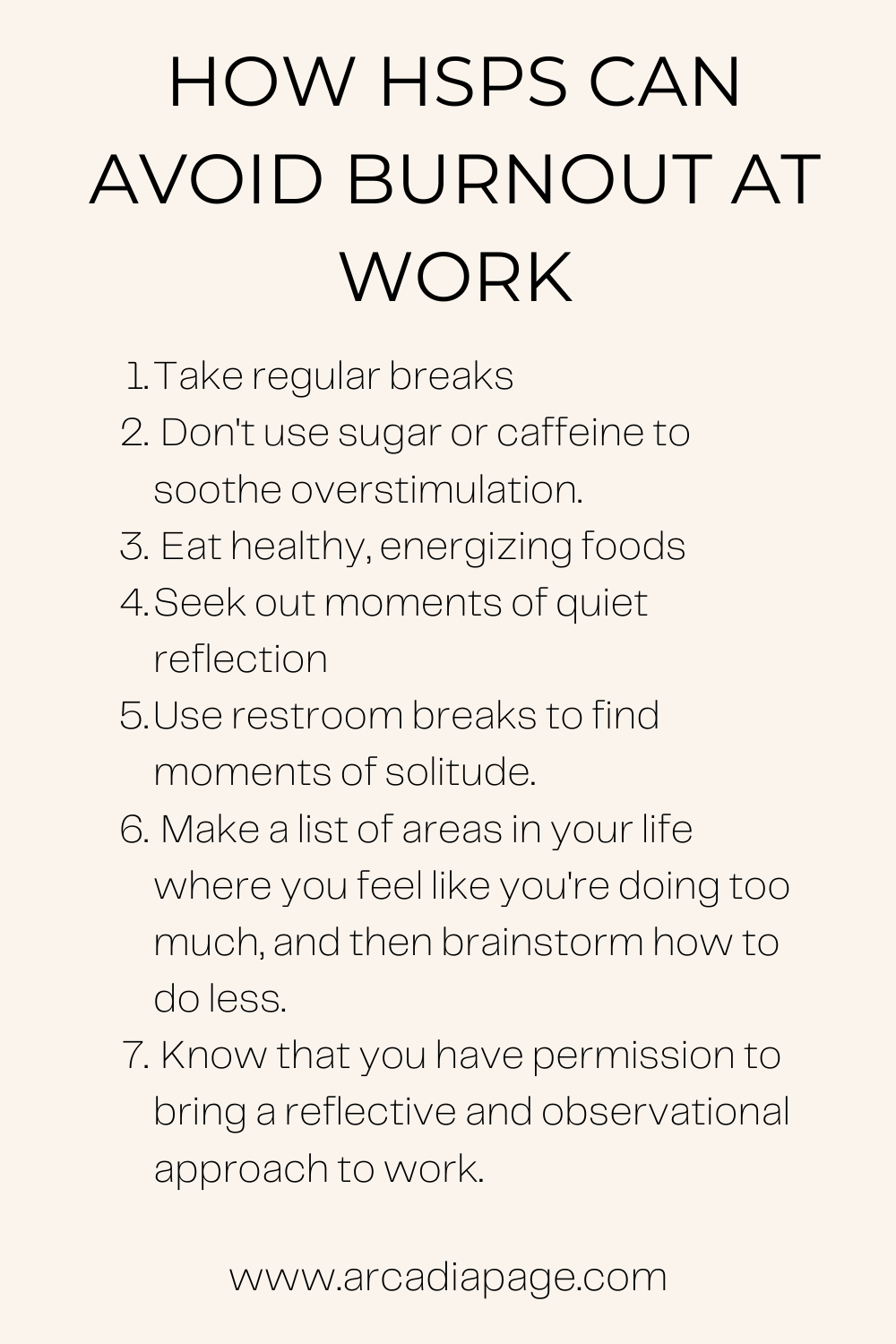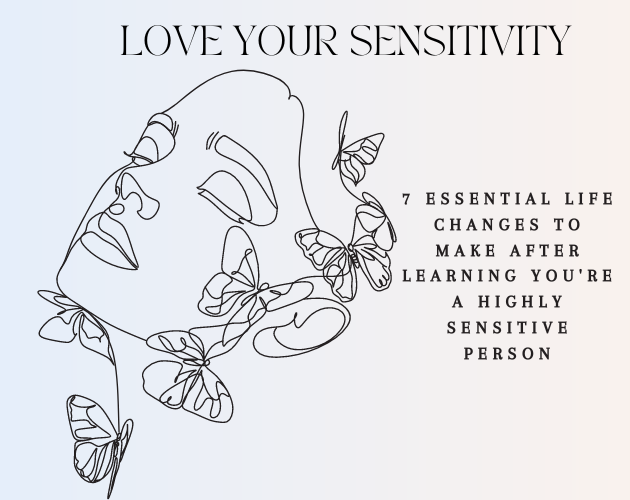If the topic of this post resonates with you, you’ll probably also appreciate my latest book, Love Your Sensitivity: 7 Essential Life Changes to Make After Learning You’re a Highly Sensitive Person
For highly sensitive people living in a world that encourages pushing through overstimulation is tough. When you feel tired, worn out, and overwhelmed, the general advice is to drink more coffee and work through it.
We often hear, “No pain, no gain.”
Our commercialized culture encourages overwork, instead of stepping back and taking a more thoughtful and gentle approach to what we do.
For HSPs, this can be damaging because HSPs need space and downtime for their well-being. Overworking eats away at the resources that highly sensitive people need the most. A little while ago, I stumbled across A Barista Self-care Zine. I love how it brings out that coffee isn’t fuel, but burns the energy you already have. I think this idea is a good reflection of how the culture of overwork is an ongoing mirage. This burning-the-candle-at-both-ends mindset celebrates depletion over rejuvenation and sustainable care.
Not pushing through overstimulation leads to a better life for those who are highly sensitive. You are less likely to burn out, and you don’t feel as tired because you are working within what is natural for you, instead of breaking yourself to work in a way that is unnatural or even mechanical.
I want to stress the importance of not pushing through overstimulation if you can help it. The goal is to work in a way that uses the energy you have thoughtfully, instead of racing down to empty.
Get More Rest
One way you can be more sustainable with your energy is pretty clear: get more rest. When we feel overstimulated, it can be tempting to take in more stimulation, be it by drinking more caffeinated drinks, eating more sugar, scrolling online, or whatever it takes to keep awake so we can keep on pushing. Sometimes our reliance on a stimulant causes us to deny that we are tired in the first place. There is a reason why tiredness and sugar cravings often go hand in hand.
However, the real reason our bodies are shutting down is not that we need to squeeze in more stuff but because we need to rest. Unfortunately, honoring that is not always possible, but knowing that there is nothing wrong with you for being unable to push through tasks and activities can forever change how you approach overstimulation when it hits you. When going through this, it is okay to take a break, step back, or go to the restroom to hang out for a moment. Give yourself space instead of trying to do more.
If you are used to using your diet to deal with overstimulation, I recommend checking out this post, A Creative Person’s Guide to Feeling Healthy from The Creative Independent. I appreciate this article because it gives clear advice on how to add food to your diet that gives you energy, along with other practical lifestyle advice.
Do Less
And this leads to the idea of doing less in general. Doing less is more sustainable than trying to squeeze in more stuff. A sense of failure often accompanies overstimulation. You want to do more but can’t because you are hitting a wall. The reason why that wall is there is that you have hit your limit. When you hit your limit, that is not a line you want to bulldoze through. It is a line you want to respect.
People talk about creating boundaries with others and asking them to respect those limits, but often we do not pay attention to what our limits are–what boundaries we have in our relationship with ourselves and how we function within those.
Of course, sometimes we need to test our limits and stretch beyond them. That is how we grow. But growth is a thoughtful process involving care and patient work. On the other hand, living a lifestyle of pushing and ignoring our physical, emotional, and mental limits is destructive and not healthy.
One thing I’ve found helpful is creating a list of areas of my life where I feel like I’m pushing or reaching too far beyond what is currently healthy for me. Then I review those areas and try to figure out what to do to scale back a little. Doing so as an HSP leads to less overwhelm and more mental agility. It makes you feel more together and collected than when you are trying to squeeze more into your life.
Let Go of Trying to Be Like Everyone Else
If you’re an HSP, you are neurodiverse. You are not like the general population. And believe me, that can be a good thing.
Of course, highly sensitive people are not beyond the pressure to be like everyone else, and we may even internalize the messages of pushing and hustle as the only ways to get things done. Trying to fit in has a strong pull, but the truth is that it is better if we don’t fit in and work against these unhealthy habits of pushing through when we can’t anymore.
Overworking is not in the best interests of anyone–not for yourself or those around you. For highly sensitive people, it is better to push back against overwork and do the dance with your limits.
So don’t try to blend in, but stand out as having a more observant, reflective, and relaxed style of getting things done. Be an example of someone who is honest about when they cannot do anymore, knows when to take breaks, and prioritizes their health. Then when others see how much more energy and ability you have by taking care of yourself, maybe they will realize that they need to take more breaks too and that slowing down can do them some good.

For more tips, check out the book ❤️
Any thoughts? ✨ Feel free to let me know what you think via email!
